Children With ADHD
Kids are known to have increased energy and occasionally be disruptive (life would be boring without them though, wouldn’t it?!). Many parents wonder, however, is their child displaying typical “kid behavior” or could it be something more, like Attention Deficit Hyperactivity Disorder (ADHD)?
What is ADHD?
ADHD is a neuro-developmental disorder that commonly appears in childhood, before age seven. It is a disorder that makes it extremely difficult for children to concentrate, follow directions, sit still, and control impulsive behaviors. Although all children occasionally exhibit difficulties with these tasks, children with ADHD consistently exhibit these difficulties across all settings (e.g., home, school, social settings, etc).
Although many may picture a child with ADHD as “out-of-control” and bouncing off the walls, the reality is that all children with ADHD look different. Some may, indeed, be bouncing off the walls with hyperactivity, while other children are more quiet and appear to be “spacing out”.
There is no known cause of why certain children are diagnosed with ADHD; however, research shows there may be a genetic factor. Children may be diagnosed with mild, moderate, or severe ADHD.
There are 3 subtypes of ADHD:
- Predominantly Inattentive
- Most symptoms fall under inattention
- Predominantly Impulsive/Hyperactive
- Most symptoms full under impulsivity/hyperactivity
- Combined
- Mix of inattention and impulsivity/hyperactivity
| Signs of Inattention | Trouble staying focused (keep in mind, children with ADHD can demonstrate increased focus with preferred tasks) Appear to not be listening.
Difficulty remembering instructions. Difficulty paying attention to details. Frequently losing items Difficulty completing assignments/tasks |
| Signs of Impulsivity | Acting without thinking Guessing on problems, rather than problem-solving.
Often interrupting othersDifficulties with turn-taking. Difficulties regulating emotions (e.g., temper) |
| Signs of Hyperactivity | Constantly in motion/fidgeting.
Constantly climbing/running inappropriately. Difficulty sitting still Talking excessively |
Treatment for Children with ADHD
It is very important to treat children with ADHD, as they are more likely to display difficulties in academics and struggle to maintain friendships. Not only may these effects contribute to lowered self-esteem, but they also may be overwhelming to the family. One of the essential points to remember is that a child with ADHD has a functionally distinct brain; thus, accepting this will be helpful, as it is a reminder that impulsive/hyperactive behaviors are not done on purpose.
Luckily, treatment can make a significant positive difference in your child’s life. Effective treatment may include parent education, therapy, social support, and modifications in school/home settings. Additionally, some children benefit from medication (e.g., psychostimulants, which increase certain chemicals in the brain, help children to focus and control impulsivity). By seeking professional help, your child’s doctor, therapist, and school will create personalized and individualized plans to ensure he/she is on track for optimal success in all domains of life.
5 Tips for Parents
If you are a parent with a child diagnosed with ADHD, or have a child showing signs/symptoms of ADHD, you may feel overwhelmed, exhausted, and frustrated. Remember, you are not alone and there are effective strategies to regain that sense of control.
Below are some tips to help create a happy household:
- Create a structured environment
- Pro Tip: implementation of visual schedules are very helpful! It will not only decrease impulsive behaviors, but they also will help your child follow directions
- Simplify environment
- Less is more! If your child has a neat and organized environment, it will help reduce unnecessary distractions
- Exercise
- Research shows that children with ADHD should participate in athletics, as it not only is an excellent source to burn excess energy, but it also improves attention. In fact, many professional athletes have been diagnosed with ADHD!
- Use a rewards chart
- A rewards chart, or positive reinforcement, can be a great motivator to complete tasks
- Teach wait-time
- Teaching your child to take a pause before speaking is important to reduce impulsivity. Additionally, it will teach the back-and-forth conversational exchange, promoting overall social pragmatics
- Take breaks
- Taking breaks is not only essential for a child with ADHD (e.g., taking a scheduled break while completing homework), but it is also essential for the parent. Remember to take breaks and remain calm. The calmer you are, the calmer your child will be
How Can an Occupational Therapist Help?
If your child has been diagnosed with ADHD, or is showing signs of ADHD, it is worth considering having an occupational therapist on your treatment team. Occupational therapy focuses on skills that a person requires to function appropriately in everyday life.
A pediatric occupational therapist can help a child with ADHD develop skills and strategies to manage their hyperactive and impulsive behaviors.
Recent research shows that an occupational therapist can help:
- Build awareness of time and task management
- Increase their attention to detail, which helps overall organizational skills
- Improve executive function skills (e.g., planning, memory, attention)
- Improve social skills
If you live in Florida, please don’t hesitate to reach out to Exceptional Speech Therapy to determine if your child is eligible to receive occupational therapy! Our trusted occupational therapists will ensure your child receives exceptional, individualized care.
Did You Know?
It’s essential to remember that a diagnosis never defines a child, or any person for that matter. Below is a list of a few people diagnosed with ADHD, to hopefully serve as a reminder that some of the most successful people did not let a diagnosis stand in their way!
- Channing Tatum
- The famous actor has been open about learning difficulties, as he shared to the New York Times’ style magazine that he was diagnosed with ADHD. These learning difficulties did not let him hold him back from reaching for the stars!
- Michael Phelps
- At age 9, Michael Phelps was diagnosed with ADHD; however, he went onto becoming one of the most celebrated Olympians of all time! His mother reported that swimming helped him manage symptoms of ADHD.
- Emma Watson
- Per reports, Emma Watson was diagnosed with ADHD and took medication to support her. Despite her diagnosis, she graduated from an Ivy League School and starred huge feature films (most notably, Harry Potter)
- Adam Levine
- The lead singer of Maroon 5 and vocal coach of The Voice is very vocal about ADHD, frequently reminding fans that they are not alone.
- Simone Biles
- One of the greatest gymnasts of all time! According to ESPN, she said: “I have ADHD and have taken medication for it since I was a child… having ADHD, and taking medication for it is nothing to be ashamed of nothing that I’m afraid to let people know.”
In short, with the right tools and support, your child will shine!
Andrea Scola, M.S., CF-SLP
Exceptional Speech Therapy Blog Writer
Contact Us
If you have any questions about speech therapy in Miami or Doral, Florida or would like to book an appointment for speech therapy, please call Exceptional Speech Therapy at 786.717.5649 or fill out the form below.
Myofunctional Therapy for Speech and Swallowing Disorders
Speech and swallowing disorders can significantly impact an individual's quality of life, affecting their ability to communicate effectively and enjoy meals without difficulty. While traditional therapies have long been used to address these challenges, a relatively newer approach, myofunctional therapy, [...]
What is “Scripting”? : A Guide for Parents of Kids with Autism Spectrum Disorder
Scripts are a superpower for kids with Autism Spectrum Disorder (ASD)! Let's dive into the wonderful world of scripting, what it is, and how parents can navigate this unique communication style with ease. What is Scripting? Imagine having your own [...]
5 Creative Ways to Wean Your Child off the Pacifier
Ah, the beloved pacifier – the magical tool that soothes fussy babies and saves parents from countless sleepless nights. But, there comes a time when the binky must go, as it can impact a child's oral development, sleep habits, and [...]


